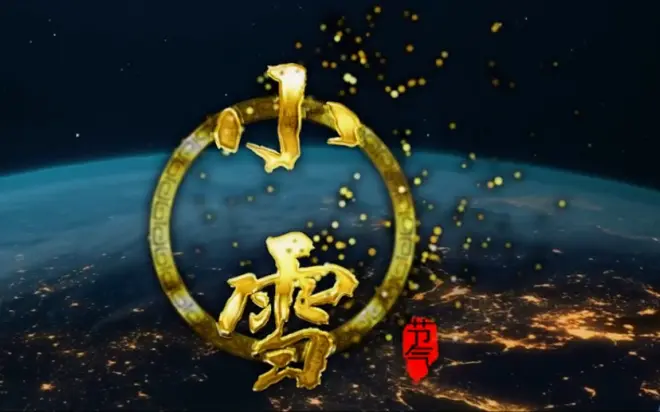苏说文化二十四节气之小雪(英文版)

每年11月22或23日,是第二十个节气——小雪。此时雪量不大,故称小雪。北方谚语有云:“小雪雪满天,来年必丰年”。小雪飘雪花,在农业生产大国的中国,是农民们最为期盼的。冰雪,冻死害虫,雪水,滋养土壤,确保来年丰收。
November 22nd or 23rd ushers in Xiaoxue, or Light Snow in English, the twentieth solar term, when it begins to snow lightly. In the north, there is a saying, “If it snows during Light Snow, there will be a good harvest next year.” Light snow now is welcomed in an agrarian country like China. Falling snow can trap and kill pests while melted snow can provide moisture to soil, making sure of a rich harvest next year.
千百年来,小雪不仅飘进了文人墨客的诗词歌赋里,也浸润着人们的日常生活。中国幅员辽阔、地大物博,中国人爱吃,会吃,每逢小雪飘落,人们会用各种饮食习俗,来迎“寒”。
For hundreds of years, Light Snow has lent itself to beautiful poetry and soulful songs. It has become entrenched in daily life too. China is a vast country with a vast territory and abundant resources. Chinese people like to eat with gusto. The arrival of Light Snow heralds another set of festivities where people follow eating customs to welcome the cold.
小雪到,美酒酿。早在夏朝,中国人就开始酿酒。小雪时节的酒,被称为“小雪酒”。此时,泉水清澈,酿出的酒,色清味醇。天寒地冻,一壶热酒,暖身暖胃。
When Light Snow comes knocking at your door, pour out the good liquor. The Chinese have made liquor as early as in the Xia Dynasty. Light Snow Liquor is a special term for that brewed during Light Snow. At this time, spring water is the clearest so the liquor brewed is clear and tasteful. A pot of hot liquor in cold winter, your stomach will be warmed.
小雪到,腊肉腌。霁学初晴,气温骤降,气候干燥,正是加工腊肉的最佳时节。小雪后,农家开始制做香肠、腊肉。两个月后,春节到来,就能享受美食。窗外飞雪漫天,屋内腊肉飘香,家人团圆,同享天伦。
When Light Snow is coming, lay bacon on the table. After the snow, the temperature drops sharply and the weather becomes dry, which is a good time for processing bacon. During Light Snow, farmers are to prepare sausages and bacon. After a wait of two months, they can begin enjoying the delicious food during Spring Festival. Snow sprinkling outside, and the fragrant aroma floating around, families gather in warm home, enjoying their happy reunion.
小雪到,糍粑(ciba21)烧。中国南方,客家人有小雪吃糍粑的习俗。古代,糍粑是用来祭牛神的供品,祈祷风调雨顺,粮食丰收。
When light snow is approaching, prepare rice cakes. In South China, Hakka people follow the tradition of eating sticky rice cakes. In ancient times, farmers offered sticky rice cakes to the God of Cattle to pray for a good harvest next year.
小雪到,干鱼晒。此时,海边的渔民,开始晒制鱼干,储备过冬。温暖的阳光下,整体排列的咸鱼,是海边初冬的一道独特风景。
Light Snow reminds you it’s time to dry fish. Fishermen living by the sea begin to dry their fish for the winter. In the warm sunshine, the neat arrangement of dried, salted fish is a vivid portrayal of the early winter by the sea.
小雪到,食刨汤。小雪前后,土家人“杀年猪,迎新年”的大戏上演。上等的新鲜猪肉,精心烹饪的刨汤,邻里乡亲,齐聚共享,其乐融融。
Light Snow reminds you it’s time for a pork feast. Before and after Light Snow, Tujia community carries out the annual tradition of slaying pigs and welcoming New Year. Farmers use their best fresh pork to cook up a pork feast. Neighbors are invited and gathered together to have a good time.
中国人的美食,不但要色香味俱全,还要有益健康。小雪时节,食用牛羊肉等不仅能暖身,还能“暖心”。冬季,阴郁萧瑟,很容易让人情绪低落,这时,食用菠菜、黄豆、青菜、猕猴桃等富含叶酸的食物,可以调节心情,缓解抑郁。正所谓,食暖不畏冬寒。
Food for the Chinese is as therapeutic for the soul as it is for their palate. During Light Snow, people prefer to eat beef and mutton to keep their bodies and souls warm. A gloomy and bleak winter may lead to depression. So the Chinese prefer to eat spinach, soybean, greens, kiwifruit and other foods rich in folic acid to relieve symptoms of depression. Eating these so-called “warming food” helps people enjoy winter.

